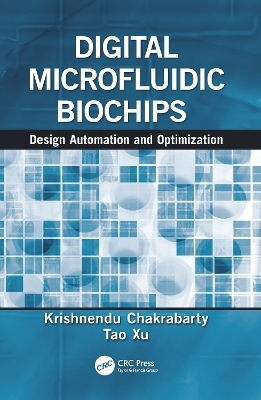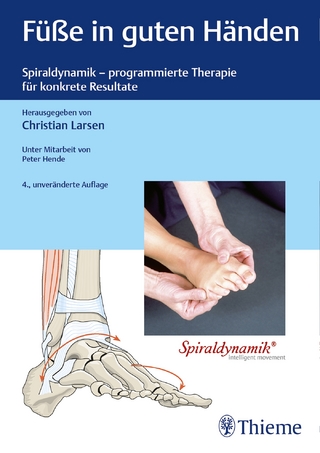
Digital Microfluidic Biochips
Design Automation and Optimization
Seiten
2017
CRC Press (Verlag)
978-1-138-11240-7 (ISBN)
CRC Press (Verlag)
978-1-138-11240-7 (ISBN)
Microfluidics-based biochips combine electronics with biochemistry, providing access to new application areas in a wide variety of fields. Continued technological innovations are essential to assuring the future role of these chips in functional diversification in biotech, pharmaceuticals, and other industries.
Revolutionary guidance on design, optimization, and testing of low-cost, disposable biochips Microfluidic Biochips: Design Automation and Optimization comprehensively covers the appropriate design tools and in-system automation methods that will help users adapt to new technology and progress in chip design and manufacturing. Based on results from several Duke University research projects on design automation for biochips, this book uses real-life bioassays as examples to lay out an automated design flow for creating microfluidic biochips. It also develops solutions to the unique problems associated with that process.
Highlights the design of the protein crystallization chip to illustrate the benefits of automated design flowIn addition to covering automated design, the authors provide a detailed methodology for the testing, use, and optimization of robust, cost-efficient, manufacturable digital microfluidic systems used in protein crystallization and other areas. The invaluable tools and practices presented here will help readers to:
Address optimization problems related to layout, synthesis, droplet routing, and testing for digital microfluidic biochips
Make routing-aware, architectural-level design choices and defect-tolerant physical design decisions simultaneously
Achieve the optimization goal, which includes minimizing time-to-response, chip area, and test complexity
Effectively deal with practical issues such as defects, fabrication cost, physical constraints, and application-driven design
The authors present specialized pin-constrained design techniques for making biochips with a focus on cost and disposability. They also discuss chip testing to ensure dependability, which is key to optimizing safety-critical applications such as point-of-care medical diagnostics, on-chip DNA analysis, automated drug discovery, air-quality monitoring, and food-safety testing. This book is an optimal reference for academic and industrial researchers in the areas of digital microfluidic biochips and electronic design automation.
Revolutionary guidance on design, optimization, and testing of low-cost, disposable biochips Microfluidic Biochips: Design Automation and Optimization comprehensively covers the appropriate design tools and in-system automation methods that will help users adapt to new technology and progress in chip design and manufacturing. Based on results from several Duke University research projects on design automation for biochips, this book uses real-life bioassays as examples to lay out an automated design flow for creating microfluidic biochips. It also develops solutions to the unique problems associated with that process.
Highlights the design of the protein crystallization chip to illustrate the benefits of automated design flowIn addition to covering automated design, the authors provide a detailed methodology for the testing, use, and optimization of robust, cost-efficient, manufacturable digital microfluidic systems used in protein crystallization and other areas. The invaluable tools and practices presented here will help readers to:
Address optimization problems related to layout, synthesis, droplet routing, and testing for digital microfluidic biochips
Make routing-aware, architectural-level design choices and defect-tolerant physical design decisions simultaneously
Achieve the optimization goal, which includes minimizing time-to-response, chip area, and test complexity
Effectively deal with practical issues such as defects, fabrication cost, physical constraints, and application-driven design
The authors present specialized pin-constrained design techniques for making biochips with a focus on cost and disposability. They also discuss chip testing to ensure dependability, which is key to optimizing safety-critical applications such as point-of-care medical diagnostics, on-chip DNA analysis, automated drug discovery, air-quality monitoring, and food-safety testing. This book is an optimal reference for academic and industrial researchers in the areas of digital microfluidic biochips and electronic design automation.
Krishnendu Chakrabarty is a Professor of Electrical and Computer Engineering at Duke University and a Chair Professor of Software Theory at Tsinghua University, Beijing, China. Tao Xu is a DFT Engineer at Cisco Systems, Inc.
Introduction. Defect-Tolerant and Routing-Aware Synthesis. Pin-Constrained Biochip Design. Testing and Diagnosis. Design for Testability. Application on Protein Crystallization. Conclusions. References.
| Erscheinungsdatum | 25.07.2017 |
|---|---|
| Zusatzinfo | 14 Tables, black and white; 139 Illustrations, black and white |
| Verlagsort | London |
| Sprache | englisch |
| Maße | 156 x 234 mm |
| Gewicht | 453 g |
| Themenwelt | Medizin / Pharmazie ► Physiotherapie / Ergotherapie ► Orthopädie |
| Naturwissenschaften ► Biologie | |
| Technik ► Elektrotechnik / Energietechnik | |
| Technik ► Medizintechnik | |
| Technik ► Umwelttechnik / Biotechnologie | |
| ISBN-10 | 1-138-11240-2 / 1138112402 |
| ISBN-13 | 978-1-138-11240-7 / 9781138112407 |
| Zustand | Neuware |
| Haben Sie eine Frage zum Produkt? |
Mehr entdecken
aus dem Bereich
aus dem Bereich
Spiraldynamik - programmierte Therapie für konkrete Resultate
Buch | Hardcover (2021)
Thieme (Verlag)
105,00 €


